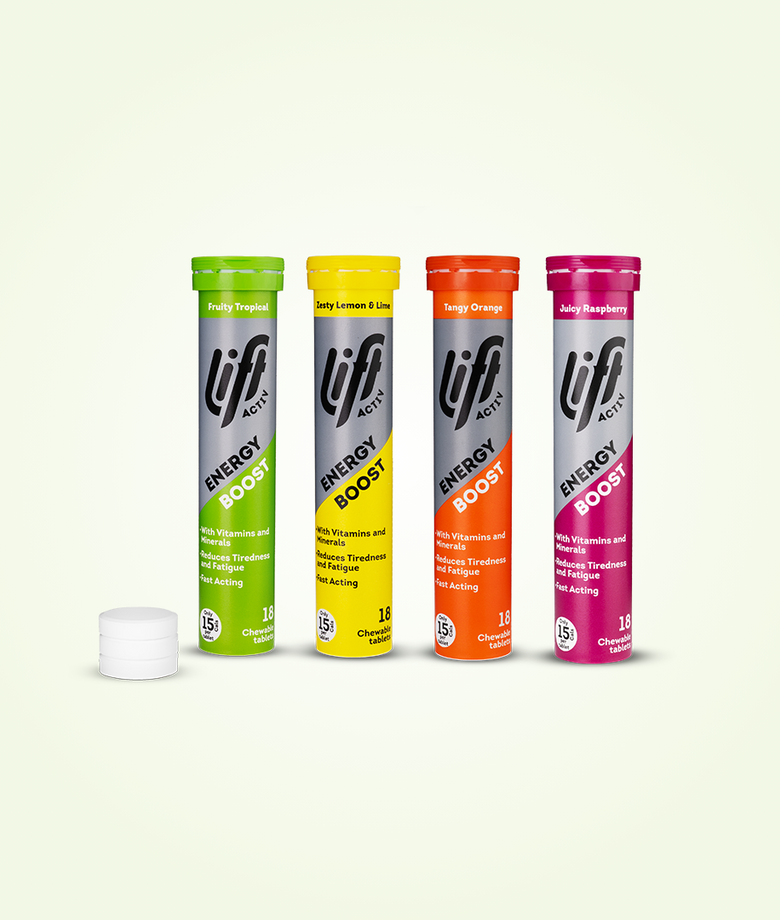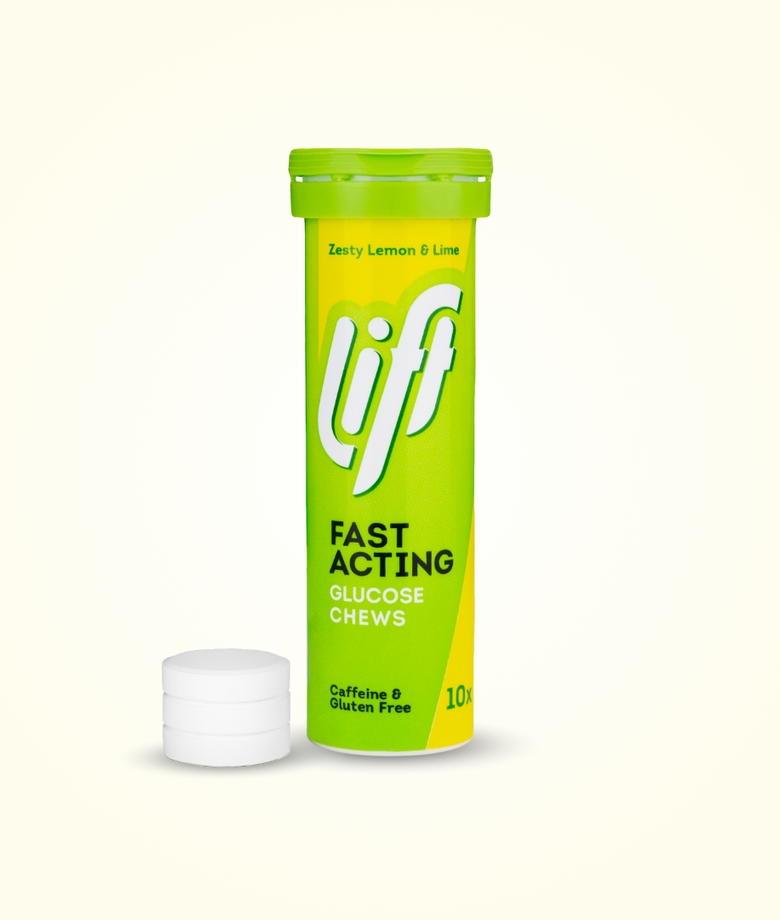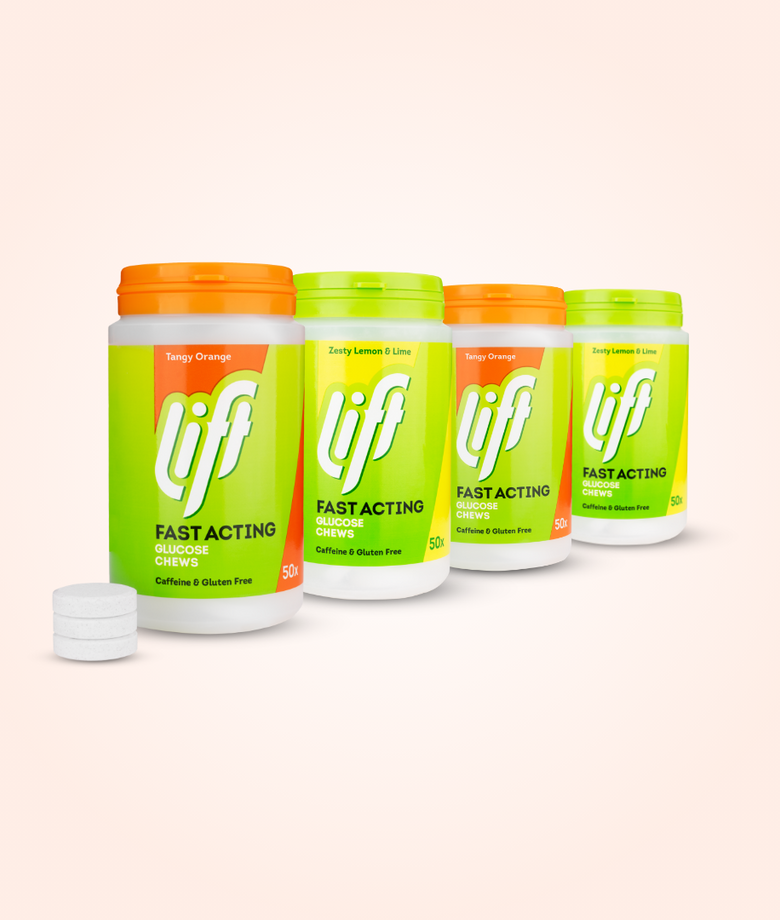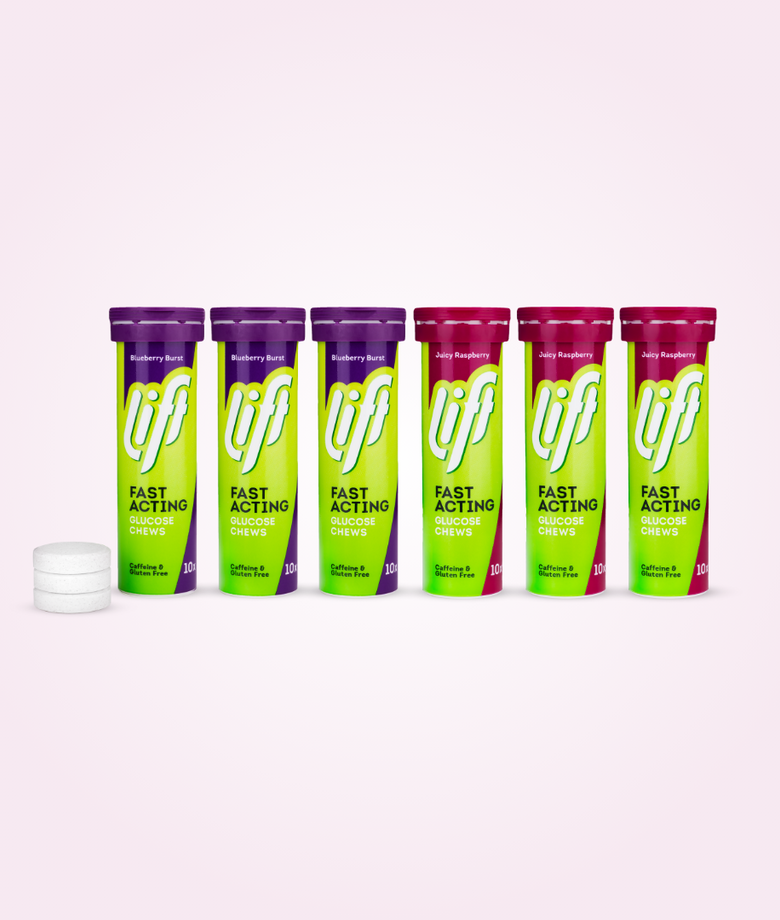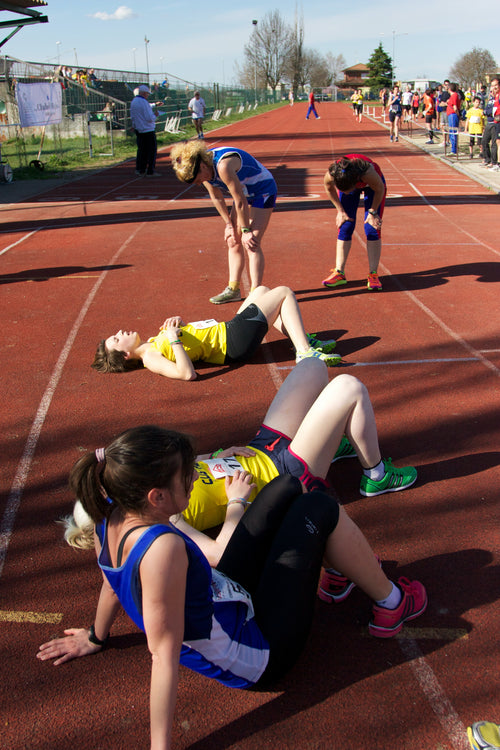How To Choose The Best Glucose Source For Your Needs
Using glucose tablets or glucose drinks is a great way to manage your blood sugar quickly. This simple sugar is the key to cellular energy production, in which glucose and oxygen are converted into energy, carbon dioxide and water. Normally we get glucose by digesting carbohydrates, but this can take hours before the glucose enters the bloodstream. Choosing the right glucose source is important if you need to raise your blood sugar quickly. In this article, we discuss:
- Reasons People Take Glucose Supplements
- The Different Sources of Glucose
- How to Choose the Best Glucose Source
Reasons People Take Glucose Supplements
Glucose supplements may be tablets, gels, drinks or chews. They are available in different strengths and flavours, but it is important to choose the right supplement for your needs. The first thing to understand is why you are taking glucose.
Quickly combatting low blood sugar
For people at risk of low blood sugar, such as those with diabetes who take insulin, fast-acting glucose is important. When blood sugar drops too low, typically below 4mMol/L, it can cause symptoms of varying severity. Symptoms worsen as blood sugar drops, with the greatest risk being seizures and unconsciousness.
Symptoms of hypoglycaemia
According to the NHS, hypoglycaemia can be detected by symptoms including:
- Unexplained sweating
- Feeling tired for no reason
- Dizziness
- Feeling irritable, tearful, anxious or moody
- Feeling hungry
- Tingling lips
- Feeling shaky or trembling
- A fast or pounding heartbeat (palpitations)
- Changes in vision
- Feeling confused
Who faces low blood sugar?
If you think you may suffer from low blood sugar, consider the following possibilities.
People with Diabetes
Medicines for diabetes such as insulin, gliclazide and glimepiride work by lowering blood sugar, preventing it from raising too high (hyperglycaemia). Sometimes this can go too far, leading to a hypoglycaemic episode, which is sometimes called a hypo. In these cases, taking glucose tablets or consuming something sugary such as a small glass of fruit juice can raise your blood sugar back to normal levels.
Reactive Hypoglycaemia
This condition can happen to people with or without diabetes, and is characterised by regularly suffering low blood sugar within four hours after eating. This is because of an increase in insulin production by the pancreas that continues after the glucose from the carbohydrates consumed has been absorbed. This causes a deficiency of glucose in the bloodstream.
Fasting or malnutrition
If a person is fasting, has a condition that affects appetite or has an irregular diet, they may experience low blood sugar as a symptom of malnutrition. Other symptoms include unintentional weight loss, feeling tired and weak all the time, taking a long time to recover from illness and a lack of appetite.
Complication of pregnancy
Some people develop gestational diabetes during pregnancy, which causes high blood sugar as the body cannot produce enough insulin to meet the extra nutritional demands on the body. When you can’t manage this problem through a specific diet, you may have to take insulin to treat gestational diabetes. Low blood sugar during pregnancy may require fast-acting glucose supplements.
Other Medical conditions
Low blood sugar can also be a result of problems with hormone imbalance, or diseases of organs such as the pancreas, liver, kidneys, adrenal glands or heart.
Extra Energy for Endurance Sports
Quite apart from the medical reasons for taking glucose, some people run out of blood sugar during extensive and intense periods of exercise. For example, running a marathon can use up energy from an earlier meal, as well as the glucose stored as glycogen in the muscles.
It may be impossible for some athletes to consume enough carbohydrates to sustain them throughout a long-distance race such as a marathon. Instead, athletes might take glucose supplements such as glucose tablets to get an extra burst of fuel and energy within minutes.
The Different Sources of Glucose
There are many glucose sources available which may meet your needs. Depending on how quickly you need to replenish glucose, the best glucose source for you might differ from others with the same symptoms.
Carbohydrates
The most common source of glucose is carbohydrates. These are the foods that break down into glucose through digestion. Food sources of carbohydrates include:
- Wholewheat bread
- Rice
- Corn
- Fresh fruits and vegetables
- Wholewheat pasta
- Milk and Dairy products
Adults should consume between around 260g of carbohydrates per day to get the energy needed for a healthy lifestyle. Of course, this varies depending on your exercise regime, weight and overall health.1
Digesting simple carbohydrates such as plain rice or pasta can take between 30 and 60 minutes to raise blood glucose. Complex carbohydrates, such as green vegetables, take approximately five hours to digest.
Glucose Supplements
If you need to raise blood sugar quickly, glucose tablets are an accessible and portable solution. Because they contain pure glucose, the simplest form of sugar, the body can absorb the glucose into the bloodstream through the lining of the mouth. This gives your cells a chance to create energy within minutes.
Glucose Tablets
Tablets are a useful way to carry glucose if you take supplements regularly. They are chewable and available in a number of flavours, such as orange, lemon, blueberry and raspberry. Lift Glucose Tablets come in a resealable and water-resistant tube, with ten tablets in each pack.
Each tablet contains 3.7g glucose. Lift recommends taking 1-3 chews 10-15 minutes before any high-energy activity lasting 30 minutes or longer, or as needed to manage blood sugar levels for diabetics.
Glucose Drinks or Juice Shots
Glucose Drinks generally contain a greater amount of glucose than tablets. Lift Juice Shots contain 15g glucose in one 60ml shot, perfect for managing hypoglycaemia quickly and effectively. This is equivalent to just over 4 glucose tablets from Lift.
It is recommended to take half a juice shot (30ml) 10-15 minutes before a workout, or the whole 60ml during a hypo. After 15 minutes, all of the glucose will have been absorbed into the bloodstream, restoring your blood glucose to optimal levels.
Choosing Glucose Supplements
The glucose source you choose should depend on the following factors:
- Frequency: if you need to take glucose regularly, tablets can take up less space in your bag, glove compartment or pocket.
- Glucose content: for hypoglycaemia or high-energy endurance sports, a juice shot might be the most effective supplement for your needs as they have higher amounts of glucose per serving
- Convenience: the size of the packaging makes a difference. Consider different options for use at home and on the move.
- Affordability: the price difference between supplements is a key factor. Consider how frequently you will be using glucose to calculate the best option for you.
- Preference: some people prefer drinks to tablets, and others like it the other way around. If it works for you, do it.
This article is designed to help you choose the best glucose source for your needs. Whether you are diabetic, an athlete or following an intense workout plan, the right glucose source can help you gain extra energy quickly.
References
- Food and Drink Federation (2021), Reference Intakes (Previously Guideline Daily Amounts), Food Labelling, [accessed 14.09.23]
